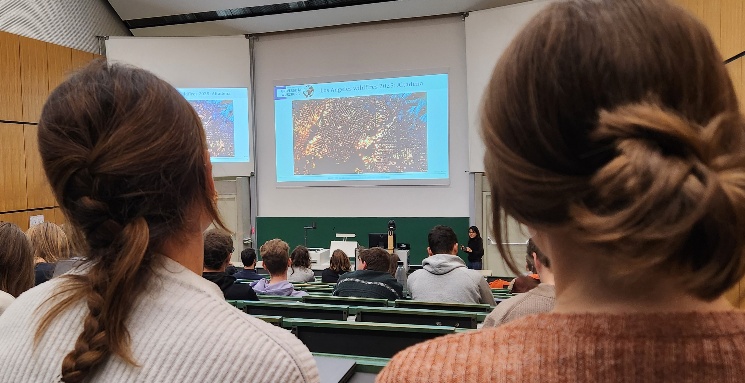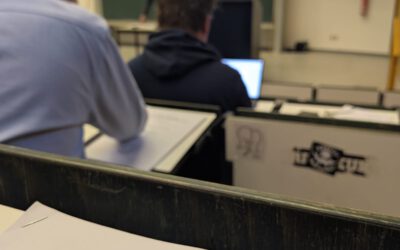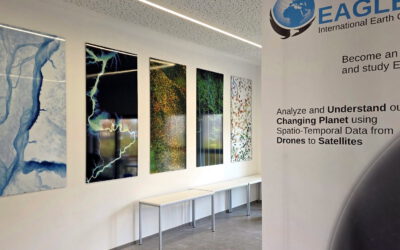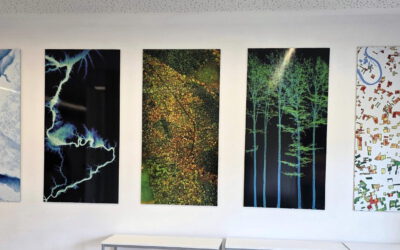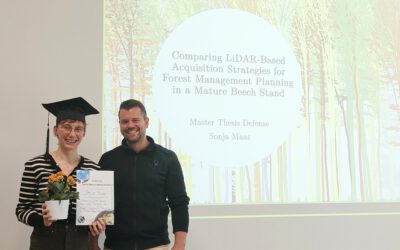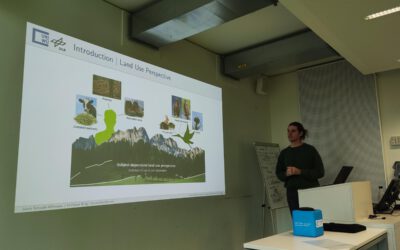We are thrilled to share the amazing achievements of our talented students who recently completed their scientific presentation course with flying colors. Our eagles had the exciting opportunity to introduce over 100 BSc students to the world of remote sensing, showcasing a wide array of innovative applications with great success.
The presentations were not only informative but also visually stunning, with each presenter demonstrating a deep understanding of Earth observation technologies like LiDAR and remote sensing (Sentinel 1, 2, 3, and 5P). From fire mapping to analyzing urban green spaces, our students made complex concepts accessible and engaging. They skillfully connected theory with real-world applications, highlighting how remote sensing technologies are transforming fields such as environmental monitoring and urban planning.
What stood out the most was the professionalism and creativity displayed by all presenters. Their ability to present technical content in an engaging manner is truly commendable. The use of visuals and practical examples helped to demystify these technologies and showcase their potential in addressing pressing global challenges. The presentations were not only educational but also inspiring, demonstrating the impact that Earth observation tools can have on our world.
We are incredibly proud of how our eagles have stepped up and shown what they are capable of. Their hard work, attention to detail, and enthusiasm made the course a resounding success. We hope that they continue to develop their presentation skills in the years to come, setting new standards for excellence in both content and delivery.
As they embark on their future careers, we have no doubt that these students will continue to inspire and innovate in the field of remote sensing. Well done to all who participated—we look forward to seeing where your talents take you next!
you may also like:
Poster Presentation at AK Hydrologie, Bonn
From November 13 to 15, Sofia Haag and Christian Schäfer attended the AK Hydrologie workshop in Bonn, where they presented their work from the EO4CAM project. The first day featured an insightful field excursion to the Ahrtal region, led by Prof. Dr. Jürgen Herget,...
Save the Date: Celebrating 25 Years of Remote Sensing at University Würzburg
Next year marks a very special milestone for us. The Department of Remote Sensing is turning 25! Together, we’ll also celebrate 10 years of the EAGLE MSc program and 5 years of the Department of Global Urbanisation and Remote Sensing. These anniversaries represent...
A Glimpse into Our Research: Data on Display in the Foyer
Stepping into the foyer, visitors are now greeted by large, striking images that tell the story of our research through data. Each visual represents a unique scientific perspective – from the Arctic to the cultivated landscapes of Bavaria, and from forest canopies to...
Successful MSc defense by Sonja Maas
Big congratulations to Sonja Maas, who successfully defended her Master thesis today on the highly relevant and increasingly pressing topic: LiDAR-Based Acquisition Strategies for Forest Management Planning in a Mature Beech Stand Supervised by Dr. Julian Fäth and...
From Abandonment to Opportunity: Alexander V. Prishchepov Discusses Global Land Abandonment at the EORC
What are the main drivers and global patterns of farmland abandonment? How can remote sensing help address the challenges of studying farmland abandonment? In what ways might abandoned farmland contribute to biodiversity conservation and carbon reduction? These...
Visit at the Institute for Geoinformatics (IFGI) at University of Münster
Two days ago, our PostDoc Dr. Jakob Schwalb-Willmann visited the Institute for Geoinformatics at University of Münster to give a talk at IFGI’s GI Forum titled “Can animals be used to classify land use? Employing movement-tracked animals as environmental informants using deep learning”.

